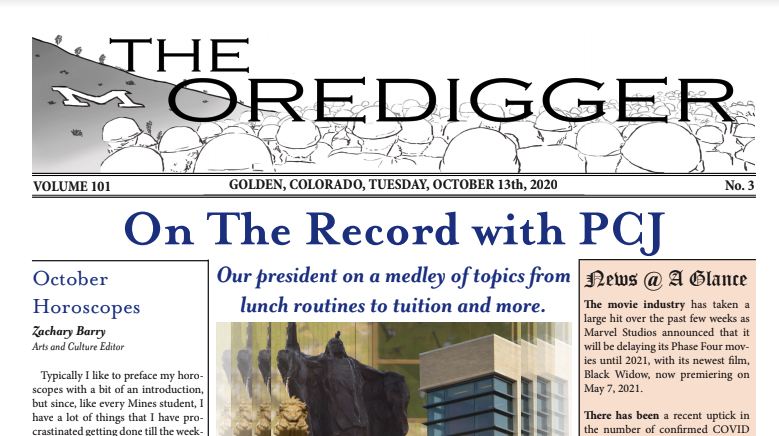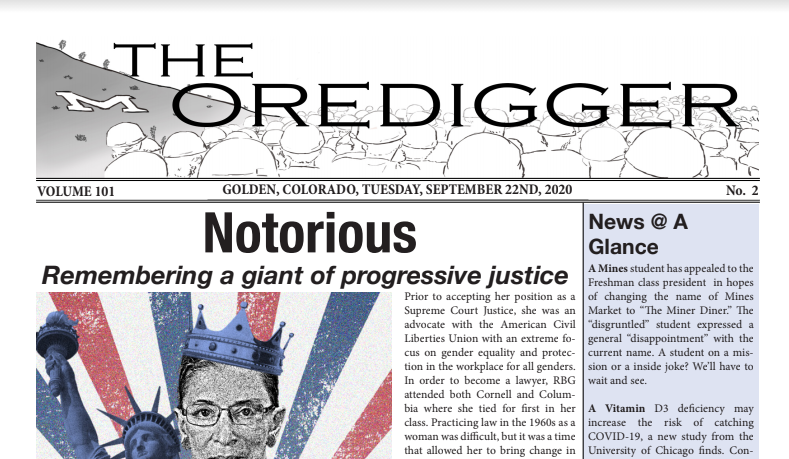In giving advice for building resumes, Fast Enterprises employees Nathan Behrens and Jordan Riebel, both Mines graduates, instructed students to brag, brag, brag. Writing resumes is about telling the most about yourself in as little words as possible. Making companies want you is Behrens and Riebel’s chief objective when it comes to constructing strong resumes.
Start early by budgeting time. Allocate a set amount of time per day to research job opportunities and put together a first draft resume. It is important to make a broad search, utilizing all available resources to broadcast yourself. Riebel explains that “the more people you know, the more people that will present [you] a job.” Relatives, friends, and neighbors are great places to start asking around.
Be proactive in your search by contacting employers and checking back often. “If you know a company you really want to work for, go to their website first.” Then keep an eye out for areas in high demand, as companies may present several job openings at once.
Even with all the work behind a resume, recruiters may take one look at it and toss it back into the pile. Make it stand out at a glance through clean formatting, logical arrangement, and strong adjectives. Contact information – name, address, phone number, and email – is usually located at the top of a resume. Immediately after that should be an objective statement that tells the employer what you are looking for from them. Relative work experience and education takes up most of a resume. Both should be chronological, starting at the most recent, while the most influential section should come first to accentuate your skills. Including high school information is okay, but needs to be omitted from any resume by junior year. Awards and interests are generally located at the end and do not take up a lot of space. Ultimately, remember that “a resume is a direct reflection of you;” do not be afraid to personalize it and let your character shine through.
Recruiters are picky about the resumes to which they are drawn. Bulleted lists are easier and faster to read than paragraphs. Lists and titled sections allow recruiters to quickly identify the traits they are searching for. Next, do not change the font style or size during the resume. And most importantly, keep it to one page or less. If you absolutely need to exceed one page, do not print on the back because recruiters will not see it.
In addition to a resume, some recruiters request cover letters. A cover letter is a physical, addressed letter that provides a more personable impression of an applicant. It is “specific to you, the company, and the position you are applying to.” The Career Center has several examples of cover letters, in addition to Mines employees waiting to assist.
After a strong resume has been written and submitted, it is time for the interview. The number one, most-asked question to applicants is to “tell us why you fit into our company.” Tailor answers by identifying and solving the employer’s needs. Furthermore, be able to elaborate upon your own resume. Do not put anything on there that you wouldn’t be able to speak about in an interview. “Recruiters are looking for someone that they can be comfortable working with,” so behave positively as well as energetically. Dress professionally, hold eye contact, and do not be afraid to ask the interviewer any questions of your own.
The last bit of business might be the most important. Create a lasting impression on your interviewer by collecting contact info and sending a thank-you message. “If they don’t contact you,” Riebel stressed, “you want to be able to contact them.” Be sure to leave an interview confident that you know what will happen next.



'Career Day: Strong resumes' has no comments
Be the first to comment this post!